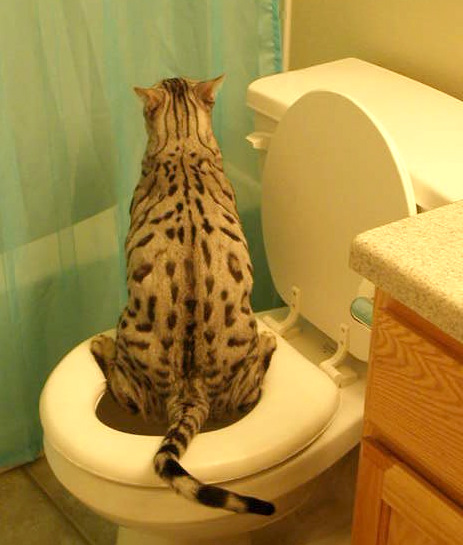Why Flushing Cat Poop Down Your Toilet Is Bad - Suggestions for Proper Handling
Why Flushing Cat Poop Down Your Toilet Is Bad - Suggestions for Proper Handling
Blog Article
Just about every person maintains his or her own opinion on the subject of Can You Flush Cat Poo or Litter Down the Toilet?.

Introduction
As feline proprietors, it's vital to be mindful of exactly how we dispose of our feline good friends' waste. While it may seem hassle-free to purge pet cat poop down the bathroom, this practice can have harmful repercussions for both the atmosphere and human wellness.
Ecological Impact
Flushing cat poop presents hazardous virus and bloodsuckers right into the water, presenting a significant threat to aquatic environments. These pollutants can negatively affect marine life and concession water high quality.
Health and wellness Risks
In addition to environmental worries, flushing pet cat waste can likewise pose wellness threats to human beings. Feline feces may include Toxoplasma gondii, a parasite that can cause toxoplasmosis-- a potentially serious illness, specifically for expecting women and people with damaged immune systems.
Alternatives to Flushing
Fortunately, there are more secure and much more responsible means to dispose of pet cat poop. Take into consideration the adhering to choices:
1. Scoop and Dispose in Trash
One of the most common approach of throwing away feline poop is to scoop it right into an eco-friendly bag and throw it in the trash. Make sure to use a specialized litter inside story and get rid of the waste quickly.
2. Use Biodegradable Litter
Go with eco-friendly feline litter made from products such as corn or wheat. These trashes are eco-friendly and can be safely taken care of in the trash.
3. Hide in the Yard
If you have a backyard, think about hiding feline waste in a designated location away from vegetable gardens and water resources. Be sure to dig deep sufficient to avoid contamination of groundwater.
4. Mount a Pet Waste Disposal System
Invest in a pet waste disposal system especially created for feline waste. These systems make use of enzymes to break down the waste, minimizing smell and ecological effect.
Final thought
Accountable family pet possession extends beyond providing food and sanctuary-- it likewise involves appropriate waste administration. By avoiding purging feline poop down the commode and choosing different disposal methods, we can reduce our ecological impact and safeguard human health and wellness.
Why You Should Never Flush Cat Poop Down the Toilet
A rose by any other name might smell as sweet, but not all poop is created equal. Toilets, and our sewage systems, are designed for human excrement, not animal waste. It might seem like it couldn’t hurt to toss cat feces into the loo, but it’s not a good idea to flush cat poop in the toilet.
First and foremost, assuming your cat uses a litter box, any waste is going to have litter on it. And even the smallest amount of litter can wreak havoc on plumbing.
Over time, small amounts build up, filling up your septic system. Most litter sold today is clumping; it is made from a type of clay that hardens when it gets wet. Ever tried to scrape old clumps from the bottom of a litter box? You know just how cement-hard it can get!
Now imagine just a small clump of that stuck in your pipes. A simple de-clogger like Drano isn’t going to cut it. And that means it’s going to cost you big time to fix it.
Parasitic Contamination
Believe it or not, your healthy kitty may be harboring a nasty parasite. Only cats excrete Toxoplasma in their feces. Yet it rarely causes serious health issues in the cats that are infected. Most people will be fine too if infected. Only pregnant women and people with compromised immune systems are at risk. (If you’ve ever heard how women who are expecting are excused from litter cleaning duty, Toxoplasma is why.)
But other animals may have a problem if infected with the parasite. And human water treatment systems aren’t designed to handle it. As a result, the systems don’t remove the parasite before discharging wastewater into local waterways. Fish, shellfish, and other marine life — otters in particular — are susceptible to toxoplasma. If exposed, most will end up with brain damage and many will die.
Depending on the species of fish, they may end up on someone’s fish hook and, ultimately on someone’s dinner plate. If that someone has a chronic illness, they’re at risk.
Skip the Toilet Training
We know there are folks out there who like to toilet train their cats. And we give them props, it takes a lot of work. But thanks to the toxoplasma, it’s not a good idea.

We had been shown that editorial about How to Dispose of Cat Poop and Litter Without Plastic Bags from a friend on another domain. Enjoyed reading our posting? Please share it. Let others find it. Thanks so much for taking the time to read it.
Prices & Booking Report this page